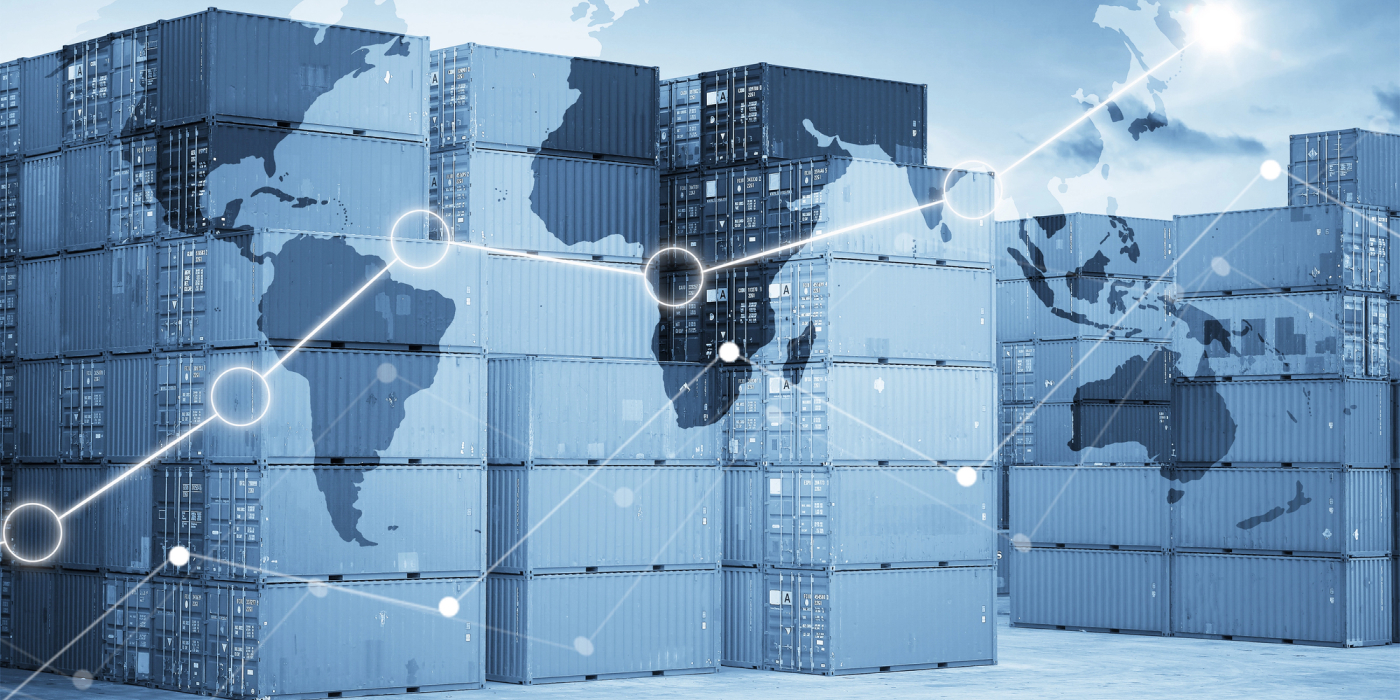Third-Party Logistics vs. In-House Logistics: Pros and Cons
As supply chain management continues to evolve, businesses are constantly faced with the decision of whether to handle logistics internally or to outsource these functions to a third-party logistics (3PL) provider. Each approach has its own set of advantages and disadvantages, and the right choice often depends on a company’s specific needs, goals, and resources.
Here’s a look at the pros and cons of third-party logistics versus in-house logistics to help companies decide which route they want to take.
Pros of In-House Logistics
Complete Control
Companies with in-house logistics control all aspects of their supply chain, including inventory management, warehousing, and deliveries. Companies often leverage their own infrastructure, staff, and technology to manage all logistics processes, improving their ability to quickly adapt to changing business needs or fluctuating demands. Shippers are increasingly maintaining or expanding their in-house fleet operations to strengthen customer service, assume greater control over their supply chains, and protect themselves from logistics disruptions.
Direct Communication
With in-house logistics, communication is often more direct and streamlined, as all operations are managed within the same organization. This can reduce the risk of miscommunication and increase responsiveness. Direct communication can enhance collaboration amongst stakeholders throughout the supply chain, leading to quicker decision-making and problem resolution. Easier collaboration across different departments can also facilitate smoother operations, improved customer experiences, and more coordinated efforts to fulfill tasks more efficiently.
Customized Offerings
In-house logistics can be tailored specifically to align with the company’s specific business needs and operational strategies. These processes can encompass a wide range of activities, from how products are packaged and handled, to the type of customer service provided during delivery, to the sustainability practices integrated into the supply chain. For brands that prioritize sustainability, in-house logistics provides the control needed to implement eco-friendly practices such as using electric vehicles for delivery or sourcing materials from sustainable suppliers.

Cons of In-House Logistics
Higher Costs
Establishing and maintaining in-house logistics requires significant investment in infrastructure, technology, equipment, and staffing. This can be a financial burden, especially for small and medium-sized businesses. Purchasing or leasing warehouse space is a substantial expense. Owning a fleet of vehicles necessitates a large upfront investment. Ongoing expenses such as maintenance, insurance, fuel, and eventual replacement of vehicles add to the cost.
Complex Management
Managing logistics internally requires expertise in multiple areas, including warehousing, logistics, and inventory management. This can add complexity to the business and divert attention from core business activities. Without the specialized expertise and resources that 3PL providers offer, in-house logistics operations may not be as efficient or cost-effective, potentially leading to higher operational costs.
Limited Scalability
Scaling in-house logistics operations to meet growing or fluctuating demand can be challenging, slow, and expensive as it often requires substantial investment and recruitment. Businesses may need to invest in additional infrastructure or personnel to manage increased volumes. In-house logistics systems that are not well-integrated and scalable can suffer from slow response times as demand increases. This can reduce the company’s ability to respond flexibly to market changes, potentially leading to lost sales or diminished customer satisfaction.

Pros of Third-Party Logistics
Cost Savings
3PL providers often have the scale and expertise to operate more efficiently than in-house logistics. This can translate into cost savings for businesses, particularly in areas like transportation, warehousing, and inventory management. By leveraging their extensive networks, technology, and expertise, 3PL providers can often negotiate better rates for transportation, warehousing, and other logistics services. Many 3PLs invest in advanced technologies, such as warehouse automation, delivery management systems, and real-time tracking. Partnering with a 3PL can give businesses access to these technologies without the need for heavy investment.
Expertise and Experience
3PL companies have specialized knowledge and experience managing complex supply chain operations. Their experience in managing complex logistics challenges, regulatory compliance, and international shipping ensures that businesses benefit from best practices and industry insights. Their expertise in logistics can lead to more efficient handling of inventory, faster order fulfillment, and improved supply chain management, resulting in improved operational efficiency, faster and more reliable delivery performance, and enhanced customer satisfaction.
Scalability and Flexibility
Outsourcing logistics to a 3PL provider provides businesses with the flexibility to scale operations up or down based on demand fluctuations. Whether it’s handling seasonal spikes, expanding into new markets or managing unexpected changes in order volume, 3PL providers have the resources and infrastructure to adjust quickly and efficiently. This flexibility helps businesses manage growth and adapt to changing market conditions without investing in additional resources.

Cons of Third-Party Logistics
Less Control
Outsourcing logistics to a 3PL provider means relinquishing some level of control over supply chain operations. This can be a concern for businesses that prioritize tight control over logistics processes. The goals and processes of a 3PL provider may not always align perfectly with those of the business. Variations in how tasks are performed by the 3PL could lead to inconsistencies in service quality or customer experience. Companies may find it challenging to enforce their own procedures or make adjustments to processes that better fit their business’ specific operational requirements.
Dependent on External Partners
Relying on a 3PL provider may lead to increased risk and limited flexibility. Any operational issues faced by the 3PL provider, such as equipment failures, labor strikes, or system outages, can impact a business’ supply chain. Such disruptions can lead to delays in order fulfillment, damaged goods, or unsatisfied customers, which can harm a company’s reputation. Logistics performance is dependent upon the performance of the 3PL provider. Inconsistent performance or failure to meet agreed-upon service levels can impede a company’s ability to honor its customer commitments.
Communication Challenges
Working with an external provider can sometimes result in communication challenges, especially if the 3PL provider operates in a different time zone or has different communication protocols. Miscommunication can lead to delays and misunderstandings, potentially affecting the speed of operations, customer service, and issue resolution. Problem resolution might take longer if it involves coordination between multiple parties or if the 3PL’s response time does not meet the business’ requirements.
Deciding between third-party logistics and in-house logistics involves weighing the pros and cons of each approach based on your company’s needs, resources, and goals. Ultimately, the best choice depends on your unique business requirements and long-term objectives. By considering these factors, you can make an informed decision that enhances your logistics operations and supports your operational priorities.
For more information about how our delivery management solution can help you manage your deliveries more efficiently, please contact info@bringoz.com.
